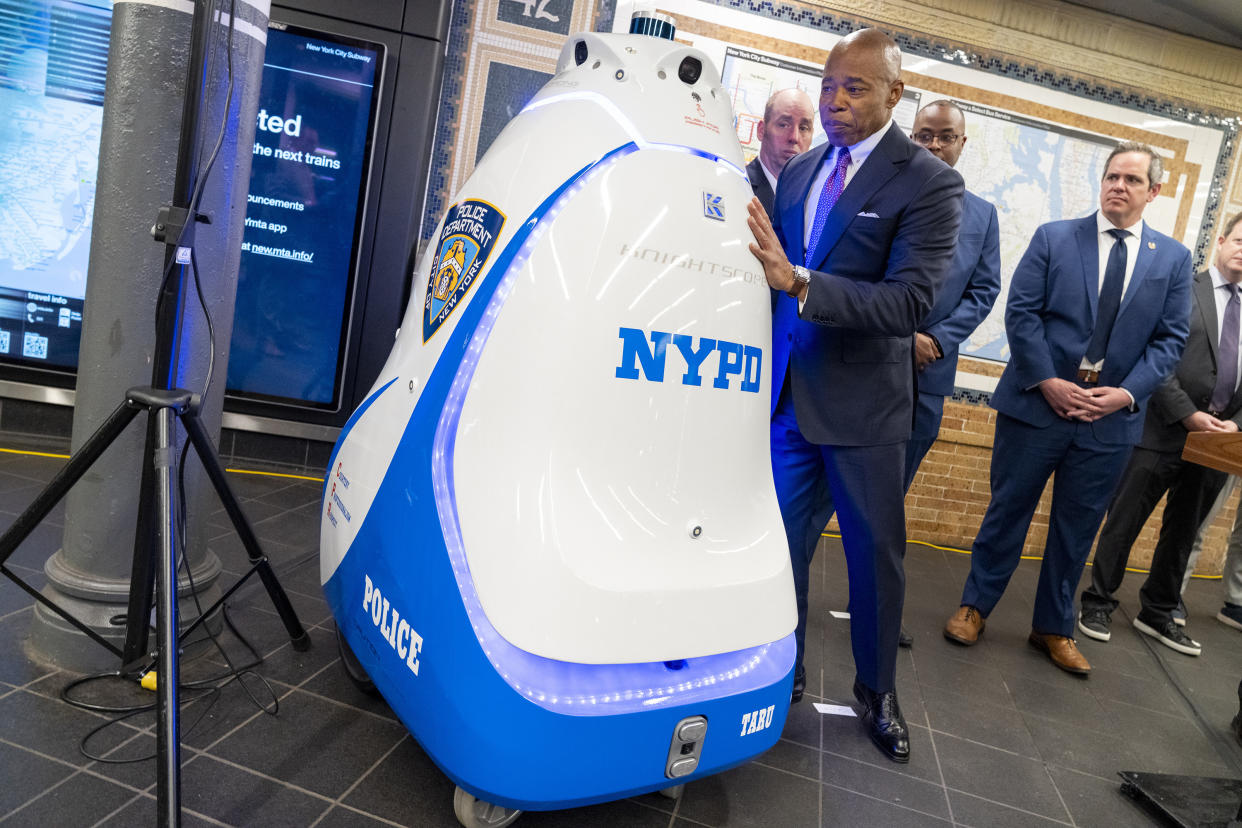NYPD still not following public disclosure law on high-tech surveillance gadgets, report says

NEW YORK — The NYPD failed to follow a public disclosure law in trotting out new high-tech surveillance gadgets like its robot dog and the robot deployed in the Times Square subway station, a new report by the city Department of Investigation has found.
The Police Department is required under the city Post Act to publish a document known as an “Impact and Use Policy” that details how it will use new surveillance devices and technology 90 days before the fact and consider public comments.
But the NYPD instead amended existing policy documents with information about the new devices, which also included a phone-based GPS tracking system, a digital fingerprint device and a device which can link a picture of a location to information in NYPD databases, the DOI report stated.
The amendments left out a range of key details required to be disclosed under the Post Act, the report found.
DOI Commissioner Jocelyn Strauber noted the agency made similar findings in 2022. As a result, “Individual technologies could be shielded from public scrutiny and oversight,” the 2022 review found.
“This report reiterates a significant finding from our 2022 analysis — that grouping surveillance technologies within a single Impact and Use Policy (‘IUP’) can limit the public transparency that the Post Act seeks to ensure,” Strauber said.
In a statement, a police spokesperson said, “Protecting public safety is this administration’s top priority, and a key part of that mission is using technology to help keep New Yorkers safe. We are committed to doing so consistent with the law. We will carefully review DOI’s conclusions and recommendations.”
Albert Fox Cahn of the Surveillance Technology Oversight Project said the report underscores that the NYPD continues to violate elements of the Post Act.
“Once again, (DOI) is clear that the NYPD is hiding crucial data with boilerplate policies that hide more details than they reveal,” he said.
“You should have a new policy with a new comment period for each technology,” he added. “But the other issue is that these amendments are so opaque that they don’t tell us anything meaningful.”
Added Jerome Greco of the Legal Aid Society, “New Yorkers didn’t sign up to serve as guinea pigs for City Hall’s experiments with problematic and invasive technology. There are plenty of other solutions available to address root causes and advance public safety that do not foolishly rely on technology like the DigiDog as some sort of public policy panacea.”
The Post Act, or Public Oversight of Surveillance Technology, requires the NYPD to “publicly disclose information concerning its use of surveillance technologies and its policies with respect to those technologies,” the DOI report noted.
The NYPD deployed a “Knightscope K5,” which is five feet tall and weighs 400 pounds, to the Times Square subway in September and withdrew it in February. DigiDog drew repeated criticism from New Yorkers, especially in 2021 when it was used at a Manhattan NYCHA development.


